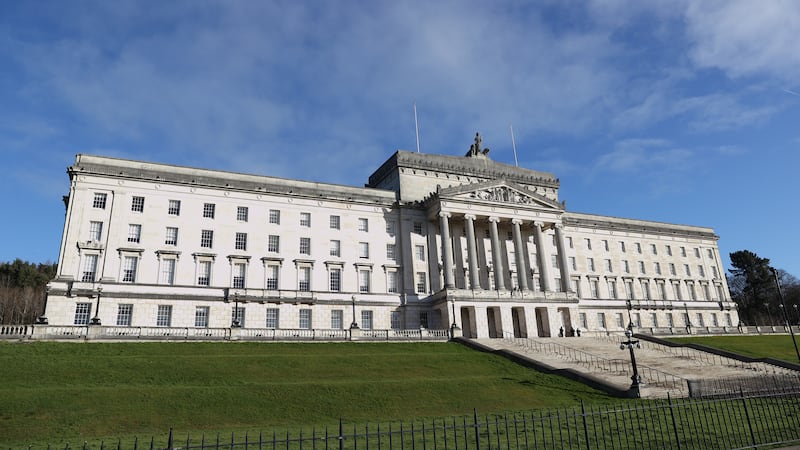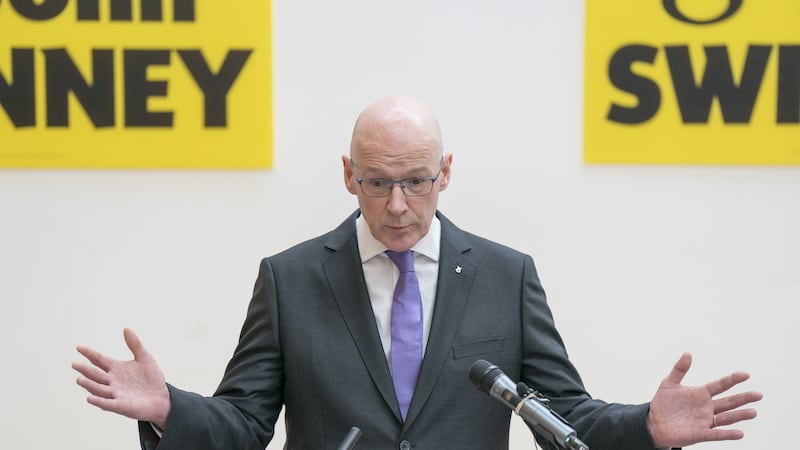The scandal involving child abuse at the Kincora Boys' home in east Belfast in the 1970s is detailed in the files. These include minutes of a meeting between secretary of state Jim Prior and the British lord chancellor and attorney-general in London in 1982 at which it was suggested that the murder of a Belfast boy Brian Mc-Dermott in 1973 had possible links to Kincora while a former DUP secretary in the early 1970s may have been involved in abuse there.
In December 1981 three former employees at the home, run under the Stormont Department of health and Social Services, were imprisoned for terms of four to six years for abusing boys resident at the Newtownards Road home.
Among them was William McGrath, a former house father at Kincora and a leading Orangeman who had earlier founded the 'Ireland's heritage Loyal Orange Lodge'.
Following these convictions a meeting was held between the parliamentary under-secretary at the NIO, John Patten, MP and the deputy chief constable of the RUC, Michael McAtamney, on February 9 1982 to discuss the forthcoming Committee of Inquiry.
The minister asked McAtamney informally 'whether any major revelations of a criminal nature might still emerge' which might warrant a judicial inquiry.
The senior RUC officer believed that if McGrath was called to give evidence "he might for malicious or other reasons make fresh allegations".
Two days later on February 12 1982 the committee of inquiry into Kincora collapsed following the resignation of three key members.
In a letter to Dugdale they expressed 'unease' about serving on an inquiry in face of persistent suggestions that major criminal aspects were still outstanding.
In a memo on the file, dated February 14 1982, Dugdale stressed the limited remit of the inquiry which was confined to administrative matters. He added: "It is not an inquiry into allegations, which are rife, of a 'cover-up' involving Protestant politicians, businessmen, senior NIO officials or people associated with Protestant paramilitary organisations."
The establishment of the committee had been predicated "on the assumption that such allegations were without foundation" as no evidence to substantiate them had come to light during the RUC criminal inquiry.
While further revelations were unlikely, Dugdale noted: "Statements from official sources, however, had failed to allay public concern around a cover-up.
"Rumour and speculation has continued to mount, leading to demands for the establishment of a sworn public judicial inquiry to establish the truth and bring the guilty men to justice."
The mounting crisis was discussed at a high-level meeting involving Mr Prior, the lord chancellor Lord hail-sham, and the British attorney-general Sir Michael Havers at the Lord Chancellor's office in London on February 16 1982. Havers revealed that he had spoken to the NI Director of Public Prosecutions who revealed that the RUC were actively investigating three aspects of the Kincora affair.
According to the minutes: "The first concerned a man called Campbell whom the attorney-general understood to have been secretary of the DUP and who, in 1972, had been falsely acquitted on the basis of perjured evidence."
The file on his case had been destroyed by a bomb while the RUC were investigating allegations that a DHSS file on Kincora had been "mutilated" in 1977.
Finally, the attorney-general told his colleagues, "the RUC were looking again at the murder of Brian McDermott in the mid-1970s [whose] death was thought at the time to have been sectarian but it was now believed possible that there were homosexual aspects and that Campbell and others might have information to offer."
This was a reference to the unsolved 1973 murder of a 10-year-old east Belfast schoolboy Brian McDermott whose mutilated and burnt body had been found in a sack in the River Lagan at Ormeau Park on September 8 1973.
At the time the press reported fears that a "psychopathic killer" was at large. hailsham, havers and Prior agreed that an inquiry into the whole affair, to be effective, would have to compel witnesses.
In the lord chancellor's view the circumstances of the Kincora justified a sworn tribunal of inquiry. This should be carried out by a NI judge, preferably Judge McDermott.
Finally, on February 18 1982 Mr Prior announced that he had appointed a committee under a high Court judge to investigate the Kincora affair.
In a note to Prior on February 18 1982, D J Wyatt, an NIO official, doubted if a full public tribunal would "draw a line over the whole sorry story".
This led to the appointment of Sir George Terry, the former chief constable of Sussex, into the RUC's handling of the inquiry into Kincora.
Terry found "absolutely no evidence of a homosexual ring" or that such a 'ring' involved figures such as police officers, civil servants and military personnel.
Secondly, he asserted that there was no "cover-up or concealment of evidence by the RUC".
The RUC, he said, found no evidence of any paramilitary involvement in abuse at any boys' home. he did point out that William McGrath "had strong paramilitary links" which had prevented an official from passing relevant information to the police. he also ruled out the involvement of "military figures" at Kincora.
Sir George recommended an inquiry to prevent any recurrence.
In December 1983, Prior approved the appointment of a senior judge to head up a public inquiry into Kincora.
* REVELATIONS: Kincora Boys' home in east Belfast which was at the centre of a sex abuse scandal in the 1970s. Inset above, William McGrath, a leading Orangeman who was jailed for abusing boys at the home. Inset below, 10-year-old Brian McDermott who was murdered in 1973


